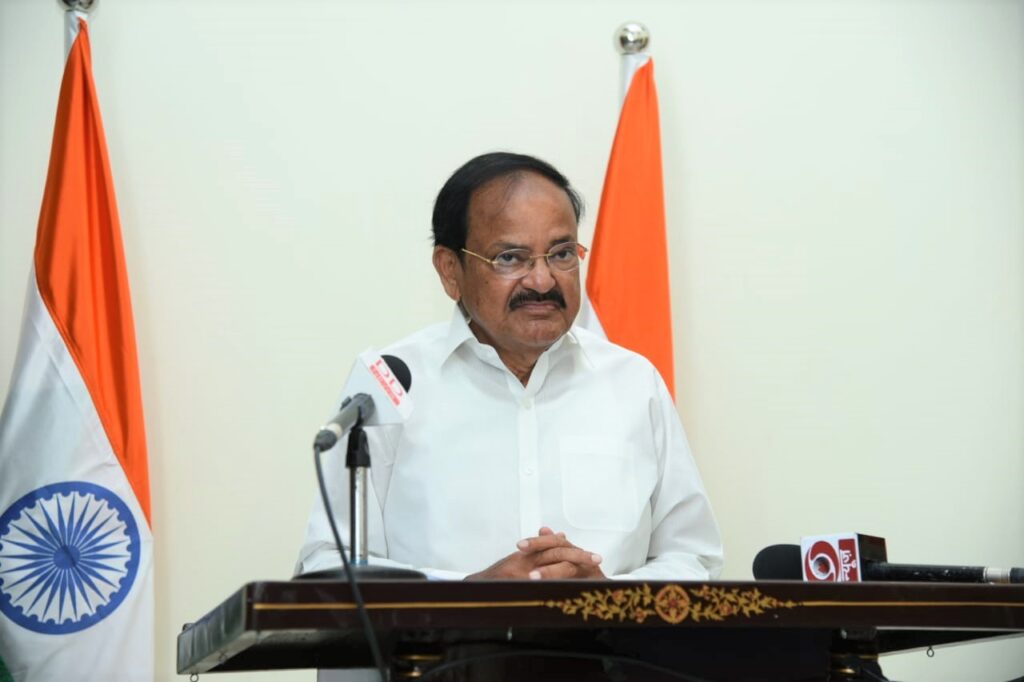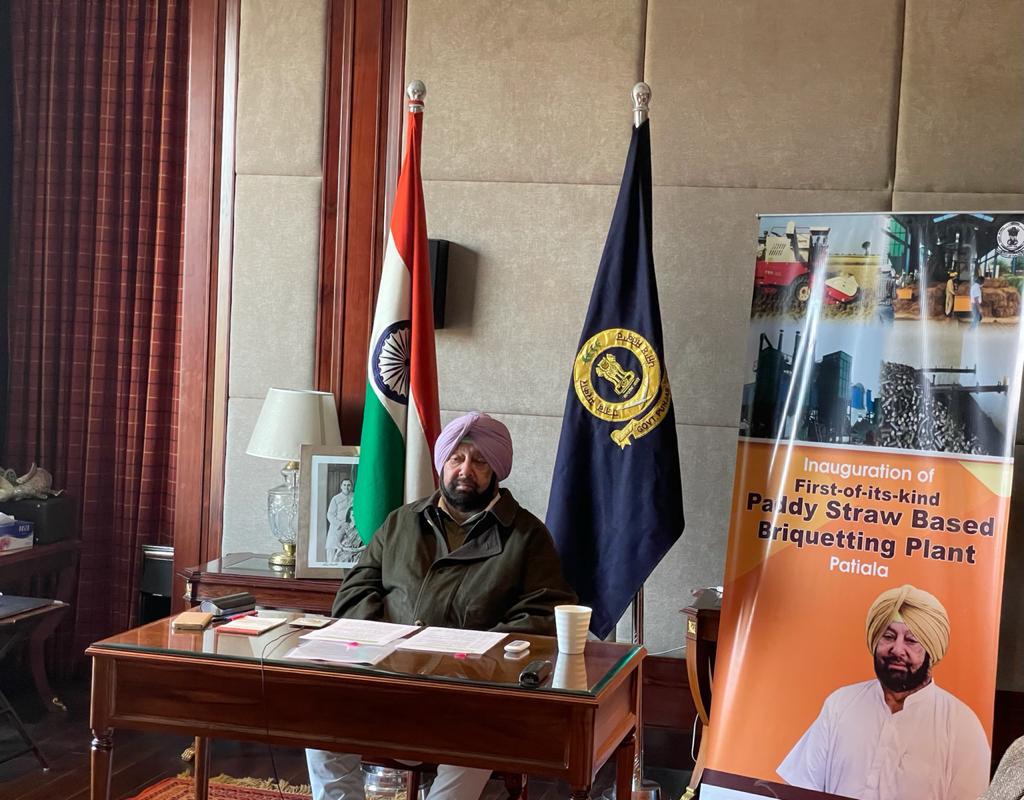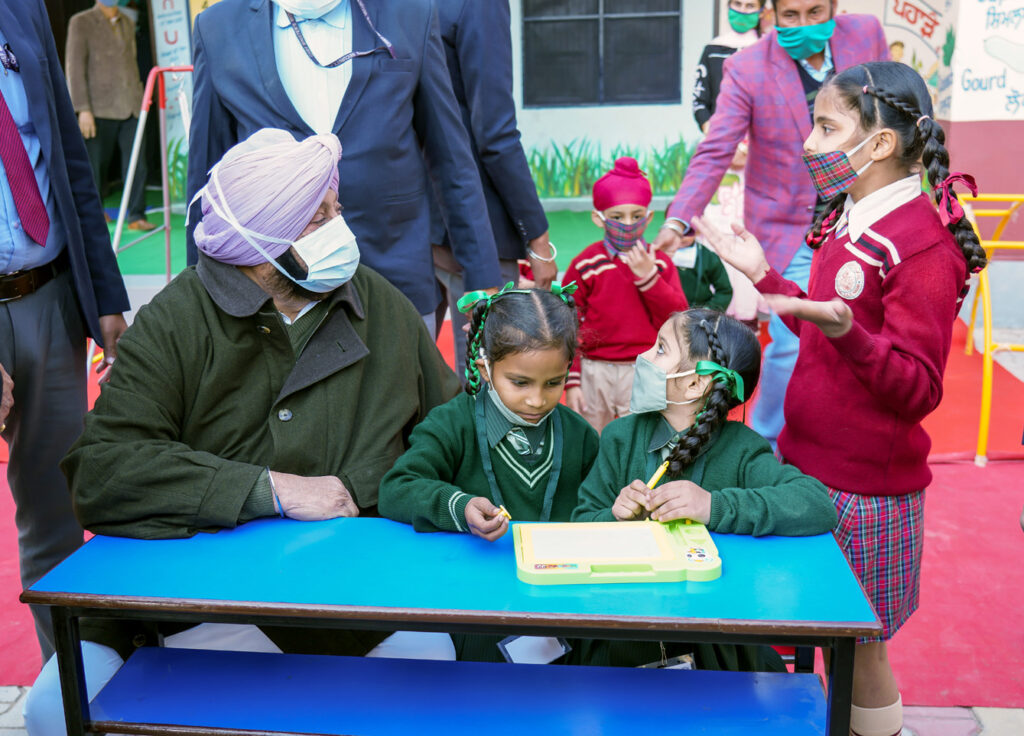Vice Prez Naidu urges media to become solution and not a problem

-Photo credit Twitter @VPSecretariat
Solution World Bureau
Hyderabad, Dec 18: Vice President M Venkaiah Naidu has urged the media to be a part of the solution and not part of the problem since like every citizen, government and other stakeholders, media too have a certain responsibility towards the nation. Here we want to inform our readers that Solution World (solutionworld.news) is one of the premier news websites of India enaged in Solution Journalism.
Naidu asserted this while referring to the ability of media to shape right public perceptions and perspectives. “In the times of ‘instant journalism’, the line between ‘news’ and ‘fake news’ has become very blurred and is a matter of serious concern,” a tweet from the Vice President’s Offfice said.
Expressing concern over the future of media and journalism and the sanctity of news in the face of disruptive technological advances, the Vice President urged all the stakeholders to ensure credible journalism since media is an effective tool of empowerment of people for informed public discourse.
Naidu spoke at length on “Journalism: Past, Present and Future’’ while delivering the M.V. Kamat Memorial Endowment Lecture in virtual mode from Hyderabad today.
The Vice President listed the concerns about media and journalism as issues relating to; Freedom of press, censorship, flouting of norms of reporting, social responsibility of journalists, decline in the values and ethics of journalism, yellow journalism, journalism of false crusades, reporting for profit, disinformation in the form of fake and paid news, disruptions caused by the Internet and the future of media amidst these concerns and challenges.
Naidu said; “Yellow journalism seeks to cloud the facts by resorting to eye-catching headlines and promotes distortion and misinformation. Journalism based on taking up false crusades as witnessed in the case of suicide of a film actor recently, is a fellow traveler. Both are aimed at increasing readership and viewership and should be avoided.”
He voiced concern over the implications of the growing ‘instant journalism’ triggered by the emergence of Internet and social media expansion in the form of propagation of fake news and erosion of journalistic norms and ethos. He further noted that technology giants have emerged as algorithmic gatekeepers of information and the web emerging as the main distributor of news.
“The information and reports generated by the print media at substantial cost is being hijacked by the social media giants. This is unfair. Some countries are taking measures to ensure revenue sharing by the social media giants with the print media. We too need to take a serious look at this problem and come out with appropriate revenue sharing models for the survival of traditional media,” he stated.
Welcoming the democratisation and decentralisation of sharing of information and views enabled by rapid expansion of social media, Naidu expressed concern over the downsides of it in the form of news getting devalued amidst information saturation and over abundance of news. He said; “There is a certain need to ensure sanity in the use of rapidly expanding social media outlets given the implications for social harmony, common good, peace, and national security. Freedom of expression doesn’t mean unfettered outburst of anger and hate against each other that may lead to chaos.”
Referring to the crisis situation being faced by the media and journalism for various reasons and uncertain future amidst disruptive changes, Naidu stressed that an ‘auto-correction’ in needed and in fact, inevitable for a better future. He suggested enabling guidelines and regulations for restoring order while expressing himself against any restrictive regulations.
The Vice President urged the media persons to keep news and views strictly separate without allowing each of them masquerading as the other. He also stressed the need to stem the decline in journalistic values and ethos. He recalled that late M.V. Kamat although maintained this distinction between news and views. Paying rich tributes to the multifarious contributions of the veteran journalist, Naidu said that late Kamat became iconic through his principles and practices during his long career and earned respect both within and outside the country.
Pro Vice Chancellor of Manipal Academy of Higher Education (MAHE) Dr. H.S. Bhallal, Vice Chancellor Lt. General M.D. Venkatesh, Director of Manipal Institute of Communication Dr. Padma Rani and members of administrative and academic departments were among those who attended the event.
India to become toll booth free in 2 years using GPS-based toll collection

Solution World Bureau
New Delhi, Dec 18: Do you hate waiting in long queues at toll tax barriers? In two years from now India will be toll booth free.
This was revealed by Union Minister of Road Transport & Highways and MSMEs Nitin Gadkari who has said that the Government has finalised GPS-based(Global Positioning System) technology toll collection to ensure seamless movement of vehicles across the country. He said, this will ensure India becomes ‘toll booth free’ in next two years.
Addressing the ASSOCHAM Foundation Week Programme here on Thursday Gadkari shared his perspective on the theme ‘National Infrastructure Pipeline critical for economic revival across sectors,’ and explained that the toll amount will be deducted directly from the bank account based on the movement of vehicles. While now all commercial vehicles are coming with vehicle tracking systems, the Government will come up with some plan to install GPS technology in old vehicles, he said.
The Union Minister expressed hope that the toll collections may reach Rs 34,000 crore by coming March. Gadkari said that by using GPS technology for toll collection,the toll income in next five years will be Rs 1,34,000 crore.
Gadkari said that industrial development is key to employment generation and poverty eradication in India, however at present, industry is India is centralised in urban areas as such decentralisation of industry is imperative to boost growth rate as growing urbanisation is causing grave problems in cities like Delhi, Mumbai, Chennai, Kolkata and others. He also impressed upon the need to promote public-private investment in infrastructure development. He assured Government’s support in projects that are not economically viable.
Punjab gets country’s first paddy straw based Briquetting Plant
Its unique technology will ensure effective straw management & mitigate pollution

Solution World Bureau
Chandigarh, Dec 18: In a major initiative to cut down stubble burning and reduce environmental pollution, Punjab Chief Minister Capt Amarinder Singh on Friday virtually inaugurated the country’s first-of-its-kind Paddy Straw based Briquetting Plant of 100 tons per day capacity in Patiala.
Calling it an overdue initiative, the Chief Minister said the new technology will not only help check environmental pollution through gainful utilization of paddy straw in the state but will also enable farmers, especially small farmers, earn extra income from sale of paddy stubble. Confident that more such plants would come up in the future to ease Punjab’s stubble burning problem, he said the low calorific value of 3500 for briquettes (as compared with 7000 for coal) is amply balanced out economically since coal costs Rs 10000 per ton as against Rs 4500 per ton for briquette. Further, with oil becoming expensive, this is also a more viable source of energy, he added.
The plant has been set up at Kulburchan village in Patiala district, at a capital cost of Rs 5.50 crore, by Punjab State Council for Science & Technology (PSCST) in collaboration with Private Partner M/s. Punjab Renewable Energy Systems Pvt. Ltd, with the support of Ministry of Environment, Forest & Climate Change, Government of India (GoI) under the Climate Change Action Programme.
Lauding the efforts of scientists, farmers and farm equipment manufacturers to make India self-reliant in food production, the Chief Minister said that with this new technological intervention, paddy straw from around 40 villages in the plants’ vicinity will be converted to green fuel. Not only will this help in checking environmental pollution, which has become more dangerous amid the Covid pandemic, it will also the resultant health hazards, he added. The plant will utilize 45000 ton paddy straw and would help replace fossil fuel in industries, thus resulting in carbon footprint reduction to the tune of 78,000 ton CO2.
Speaking on the occasion, Chief Secretary Vini Mahajan welcomed the establishment of the plant as an important initiative as part of the various measures being taken by the state government to check the menace of paddy burning in the field. She expressed the confidence that successful commercialisation of such technological interventions will pave the way for their replication not only across the State but the entire country.
A predominantly agricultural state, Punjab generates huge quantities of agri-residue, and while wheat straw gets consumed as fodder etc., the management of paddy straw is major challenge for the state, said the Chief Secretary. Besides initiating the State Action Plan for paddy straw management, Punjab had been able to divert about 3 lac hectare of area from paddy to other alternative crops such as cotton, maize etc, said Mahajan, adding that the state is also promoting in-situ management of paddy straw through distribution of crop residue management machines to the farmers. More than 75,000 machines have been distributed so far, she disclosed, adding that 18,878 Custom Hiring Centres have also been established for distributing the crop residue management machinery, said the Chief Secretary.
Mahajan disclosed that 11 biomass based Power Plants have already been set up in the State, and a number of units for ex-situ manage of paddy straw are under installation. The first bio-CNG plant of about 33 ton per day capacity would be operational in March, 2021, she added.
Meanwhile, Executive Director, PSCST, Dr. Jatinder Kaur Arora, in her brief presentation, spoke about the salient features of the project. She shared that extensive R&D was carried out to stabilize machinery, the process of briquette manufacturing from paddy straw, as well as combustion behaviour of briquettes for use as fuel in industry. She said that the Punjab Pollution Control Board and NABARD had supported these activities in the initial stages of the project. Thereafter, the first briquetting plant with 24 TPD production capacity was successfully set up at Jalalabad village in Moga district at a capital cost of Rs 85 lakh. Subsequently, within one year, the second paddy straw briquetting plant with four times higher production capacity had been set up in Kulburchan village in Patiala district.
She further said that with support of Department of Science & Technology, GoI, the Council was also setting up a pilot unit within the Briquetting Plant site at Patiala, which can be used by R&D institutions to carry out research for further increasing the life cycle of wearable components of paddy straw processing machinery.
Speaking on the occasion, MD, Punjab Renewable Energy Systems Private Ltd (PRESPL) Lt. Col Manish Ahuja (Retd), who is the private partner for the project, said that key management personnel of PRESPL were all ex- Defence forces. PRESPL plans to invest Rs. 5000 million in cleaner technologies in coming 4-5 years across the state.
Prominent amongst others who were present on the occasion included Secretary, Science, Technology & Environment, Punjab Rahul Tiwari besides Industry Captains and senior officers from Central and State Government.
2nd phase of Punjab Smart Connect Scheme launched

Solution World Bureau
Bhelolpur (Mohali), Dec 18: To facilitate seamless e-learning in government schools amid Covid-19 pandemic, Punjab Chief Minister Capt Amarinder Singh on Friday virtually launched the second phase of the ‘Punjab Smart Connect Scheme’, marked by distribution of smart phones to another 80,000 class 12 students of Government Schools.
The event witnessed simultaneous distribution of phones at 845 schools today by various Ministers, MLAs and other dignitaries across the state.
Kick-starting the second phase at the Government Senior Secondary School here, the Chief Minister announced that the remaining 45443 smart phones of the targeted 1,75,443 would be provided to students by the end of this month, to fulfill his government’s commitment to further strengthen digital infrastructure in schools. While his government had tried to distribute these phones urgently to meet the online education challenges amid Covid, closure of the industry had somewhat delayed the process, he added.
In the 1st phase, 50000 students had received smart phones. Under the scheme, the state government is spending Rs 87.84 crore for the digital empowerment of 88059 boys and 87284 girls. The Chief Minister said that 877 tablets were also being provided today in 22 senior secondary schools at the cost of Rs. one crore. Earlier, 2625 tablets were provided to 372 primary schools at the cost of Rs. 2.99 crore.
The Chief Minister reiterated his government’s firm commitment to provide the best infrastructure in schools to enable students to compete with their peers in private and convent schools. In this context, he said 7842 schools and had been converted into smart schools with the latest infrastructure, coupled with computers, tablets etc, and 1400 more government schools would also be converted into smart schools by the end of the next year. Further, he said the School Education Department had converted 16589 classrooms as smart classrooms across the state, and the remaining would also be covered under this scheme in the next six months.
His government, said the Chief Minister, had ensured that every student studying in Govt. Schools gets the best education with the help of the latest gadgets. Punjab is the first state in the country to universalize Pre-Primary School Education in the year 2017 itself, and the same is now fully operational in all the primary schools. As many as 8393 posts of the pre-primary school teachers have been created and the same would be filled shortly, he said.
The Chief Minister said the recent reforms implemented in government schools to raise the standard of education had led to unprecedented increase in enrolment by 14.9% as an increasing number of students were shifting from private and government schools. He also underlined the need to promote sports education, for which his government was planning to set up gyms in all schools, he added.
Conceding the demand of Cabinet Minister Balbir Singh Sidhu, who is also MLA from Mohali, the Chief Minister announced that the school would be upgraded to senior secondary level and named after 1971 war martyr Captain Ami Singh, Vir Chakra. Furthermore, Rs. 25 lakh would be given to the Government senior secondary School for Girls Sohana, he said.
On the occasion, Sports and Youth Services Minister Rana Gurmit Singh Sodhi suggested district-level Captain Smart Connect Conclaves for the Chief Minister to interact with students before or after their exams to enable the latter to share their experiences on online education. Cabinet Minister Balbir Sidhu also expressed his appreciation for the Chief Minister’s efforts to promote digital and smart education in the state.
Education Minister Vijay Inder Singla said these Smart phones were distributed at 845 locations across the State at the cost of Rs. 88 Crore provided for the purpose. He said that 1400 more schools to be converted into smart schools.
Industries and Commerce Minister Sunder Sham Arora said that smart phones would be instrumental in bolstering e-learning amongst the students amid Covid-19 pandemic.
PPCC President Sunil Jakhar, while congratulating the Chief Minister for this remarkable initiative, said that it would result in ensuring quality education which alone can tackle social unrest as only an enlightened and educated mind can do that.
Earlier Chief Minister also interacted with the tiny tots of the Pre Primary wing of the school.
Prominent among others who were present at the occasion included MLA Navtej Singh Cheema, Principal Secretary to CM Tejvir Singh, Director General School Education Mohd Tayyab, DC Mohali Girish Dayalan, SSP Mohali Satinder Singh, DPI (SE) Sukhjit Pal Singh and DPI (EE) Lalit Kishore Ghai.